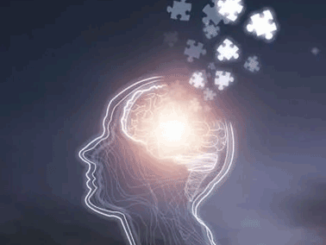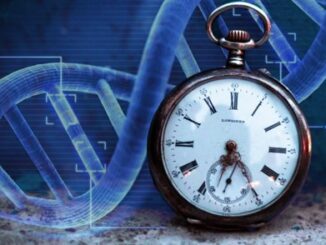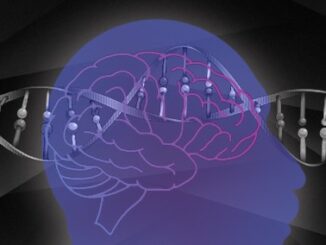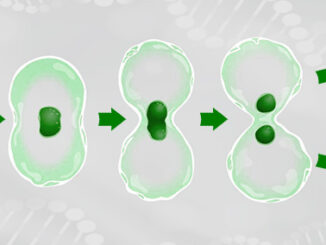Aging is a normal process linked to specific patterns and changes in the epigenome, particularly DNA methylation. Harnessing epigenetic mechanisms and understanding the epigenetic clock might enable us to slow or reduce human aging in the future, especially as scientific research reveals new associations and insights.
After DNA methylation patterns have been established during embryogenesis, researchers investigate how they are maintained, and how the environment can influence changes to marks on top of DNA during one’s lifespan.
The recent FDA approval of Donanemab has sparked celebration within the Alzheimer’s research community, offering significant hope by slowing cognitive decline in some patients. However, it is clear to scientists that Donanemab is not a cure, and the quest to truly halt or reverse Alzheimer’s disease (AD) remains ongoing. Donanemab works by targeting amyloid beta (Aβ) plaques, a hallmark protein buildup in AD’s pathology. While clearing these plaques marks a critical step, it may not address the root cause of [more…]
In the quest to unravel the mysteries of aging, scientists have long turned to our genetic code for answers. While machine learning models have offered insights into predicting biological age, understanding the causal factors behind aging has yet to be discovered. However, a groundbreaking study has now shed light on the hidden workings of aging by delving deep into the intricate realm of epigenetics. Scientists at Brigham and Women’s Hospital, part of Mass General Brigham, have developed an innovative “epigenetic [more…]
In the ongoing pursuit of understanding Alzheimer’s disease (AD), scientists are taking a closer look at the genetic landscape. Their investigation has revealed thousands of genetic variants linked to AD, many of which were once overlooked as non-coding regions of the genome. Recent advancements in the field of epigenetics have illuminated the critical role these non-coding variants play in gene regulation. However, how these gene changes affect Alzheimer’s risk and brain cells is still unclear. Researchers from the University of [more…]
From the time we are born, the cells in our bodies are constantly replicating – creating and repairing the tissues of our organs, skin, bones, and more. This process, which splits one cell into two identical daughter cells, is called mitosis, and it allows the body to grow and heal over a lifetime. For the most part, our cells are very efficient at dividing. But as we age, impairment can occur, and the information once provided by the mother cell [more…]
Oxidative stress and antioxidant interaction determine skin aging Oxidative stress damage of the skin, as a fundamental factor of aging, can occur early at birth and continue through one’s entire life. Skin oxidative damage results from an imbalance between reaction oxidative species (ROS) generation and antioxidant defenses, of which unfavorable consequences, such as aging, increased skin diseases, loss of collagen and elastin, increased DNA damage, high skin sensitivity, and increased skin pigmentation can occur. The symptoms are comprised of wrinkling, sagging, [more…]
Over the last few decades, the study of epigenetics has broadened our understanding of how the environment affects human development and disease. But, there’s still a lot we don’t know about this relationship. There have been several epigenome-wide association studies (EWAS) that have helped scientists identify altered methylation patterns. However, the challenge lies in interpreting the results obtained from these studies. Now, a new study from the Barcelona Institute for Global Health (ISGlobal) hopes to assist researchers in their biological [more…]
You’ve heard the old saying that age is just a number. But what if you could lower that number by about 30 years? Epigenetic researchers from the Babraham Institute in the UK say it’s possible. What’s more, they have proven it experimentally, using a new method based on Shinya Yamanaka’s Nobel Prize-winning technique to create stem cells. The study, recently published in eLife, demonstrates how older skin cells can be restored and rejuvenated by erasing some of the genetic marks that make them [more…]
Most people don’t think about their bones until maybe they break one. But breaking a bone, especially when you are older, could signify that your bones are weak. As we age, our bones become thinner, and our risk for diseases like osteoporosis is higher. This is because the stem cells responsible for keeping bone tissue dense and strong become impaired as we age. Research over the past few years has shown that aging is a process that involves epigenetic factors, [more…]
Not everyone ages gracefully. That’s true for people who don’t take care of themselves as adults, but it’s also true for someone whose health was jeopardized at a young age from contact with something harmful, like air pollution or poor diet. In particular, smoking exposure during early development has been linked with numerous adverse health conditions, and now a new study shows that it, as well as other harmful pollutants, can cause advanced biological aging. Early life, beginning in the [more…]
There are a lot of medications and techniques available for relieving pain today, but getting the right ones that work best for a patient is still challenging. First and foremost, a physician needs an accurate description of the pain to help treat it. However, communicating the location and intensity of pain isn’t that straightforward for many patients, even when asked detailed questions. That’s because pain symptoms are unique to each person and subjective. What may be considered unbearable to one [more…]











